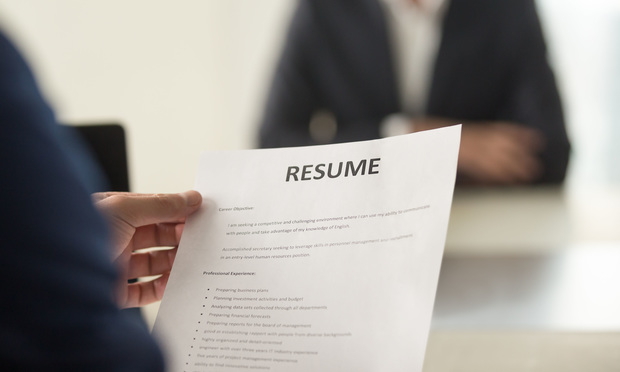The Post-Pandemic Job Interview Part One: What Prospective Employers Should be Asking Now

There’s no question that COVID-19 changed the world and your interviewing strategy should reflect this new reality. Prospective employers can learn much about the candidates under consideration by exploring how they handled the resultant business shutdown. Digging deeper into lateral prospects’ work experience during the pandemic and their reactions to the transition from office to remote working (and, at some point, back again) can be quite informative.
Timing of search
The first question is why a candidate would be seeking new employment at this uncertain time. The candidate may have a compelling reason for a move for enhanced career advancement opportunities. But, for those whose searches were prompted by furlough or layoff, hiring authorities must investigate the circumstances of the separation.
After cutting droves of lawyers during the last recession, legal employers learned a couple of hard lessons. First, eliminating large swathes of associates left law firms scrambling to rehire when work picked up and finding a shortage of trained lawyers to replace them. Second, many excellent attorneys were laid off for purely financial reasons, thus the mere fact of their unemployment did not automatically disqualify them from consideration.
Therefore, before rendering judgement, prospective employers must ferret out the facts relating to that particular candidate’s furlough or layoff. Was it for poor performance or purely a financially-based decision? Did the candidate’s previous firm lose clients or work? Was the candidate the firm’s weakest link? Was it merely the case of the candidate being last-in-first-out or the most junior? What kind of recommendations will the prospect receive from the previous firm? Can they provide work samples for you to review?
Revealing questions
Delving into candidates’ actual work experiences and reactions to the adaptations required by the pandemic shutdown can reveal much about both their hard and soft skills and, ultimately, their fit for the role and your firm. Suggested questions designed to elicit responses demonstrating the skills and traits you are seeking include:
How was your experience working remotely? How were your transitions to remote working and returning to the office? Has remote working affected how you work?
Describe how remote working affected your relationships with the clients, partners, or associates at your firm. If you had a management role, how did you handle your team? Did your communication style change during the shutdown? In what way?
Tell me about the projects you were working on right before the shutdown and those you handled while working remotely. How much did you work independently before the shutdown? Did that change, and if so, how?
Have you modified how you approach the practice of law or revised your career goals as a result of the pandemic experience?
What was your biggest challenge? What did you learn (including about yourself)? What would you do differently?
If you had more downtime because of slower work or recouped commute time, what did you do with that time? Discuss personal and career development activities.
For lateral partner candidates
Virtually every law firm engaged in lateral partner recruiting requires candidates to fill out a LPQ, or Lateral Partner Questionnaire, as part of its vetting process. The LPQ requests information such as the candidate’s educational and employment background, client base, billings and collections, and various ethics issues such as malpractice claims, involvement on corporate boards, etc. But, post-pandemic, prospective employers should ask for additional information reflecting how that historical information has been, or is expected to be, affected by the new business realities. Recommended questions include:
Did you lose clients or projects, or has your business expanded due to the pandemic? If it shrank, who, what, and why? How did you handle business development during the shutdown? What are your plans for further business development and has your strategy changed?
In addition to providing complete historical data, on the LPQ, what are realistic projections of your originations, hours, and collections based on the new, post-COVID reality?
The answers to these questions, as well as the candidates’’ attitude towards this further probing during their post-pandemic interview, will give the prospective employer significant insight into whether the prospects would be the right fit for the job and, in the long term, for the firm.
Valerie Fontaine is a partner in SeltzerFontaineLLC, a legal search firm based in Los Angeles. The second edition of her book,“The Right Moves: Job Search and Career Development Strategies for Lawyers,†published by NALP., is in its second edition. She can be reached at [email protected] or 310-842-6985.






